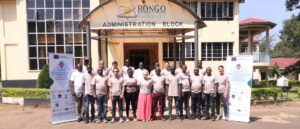Let’s face it, most theses are never going to be read by the masses. Complex sentences with complicated language referenced a thousand times… it’s not really going to be a Christmas number 1. Not unless you’re Stephen Hawking, anyway. It can get tedious and overbearing for a mentor having to wade through endless pages of academic text. Occasionally, your heart leaps when you come across a thesis that just shouts “Look at me!” for all the right reasons.
Here are some ideas to give your thesis that extra zing:
1. Always judge the book by its cover
Sorry PC people… but you can never make a second first impression. If you can’t be bothered to spell check, use correct grammar, or do basic housekeeping, people are just going to think you are sloppy, lazy, or even worse, incapable. So, get your house in order.
2. Organise, organise, organise
Lay things out in a logical manner. Don’t send your readers to the moon and back only to realise that you forgot to say something in an earlier chapter and then try to slip it into the conclusion. A thesis should be a smooth one-way journey to the end, not an academic copycat of the film Memento.
3. A picture is a worth a thousand words
Keep the word count low. If you can get your points across succinctly and coherently, why not? Better still, use pictures, diagrams, tables, charts and graphs to say what you need. For example, a flowchart can describe a process far more clearly than 20 long bulleted sentences.
4. Decorate properly
Good decor can sometimes decide whether you sell a house for £200K or £450K. Likewise, think of your examiner(s). Use clear typefaces at a readable size, with suitable spacing. Don’t be afraid to use headings and sub-headings to signpost what we should be reading. Show some flair – use bold, italics, and colour BUT be consistent with your choices. It is still an academic work, not a My Little Pony and Friends storybook.
5. Map the stars
Make sure everything is correctly labelled and in its right place. Your table of contents should be thorough and checked. All references should be reviewed and styled appropriately. This is actually very important. Watch your page numbers, especially if you are using different sets of numerals. Often forgotten are Appendices (We’ve seen students lump everything, unnumbered, into one giant Appendix).
6. Your writing voice
If you start yawning or falling asleep when someone reads your thesis back to you, then that’s the same effect it’ll have on your readers. Often, we lose ourselves in our narrow scope of research – it’s what we live and breathe during our period of study. We forget that not every reader is as readily familiar with the topic as you are. As with every story: set the scene, make it interesting and give it the killer ending that will bag you that academic Oscar.
So, get cracking and hopefully you will find writing your thesis as fun as we will find reading it.







